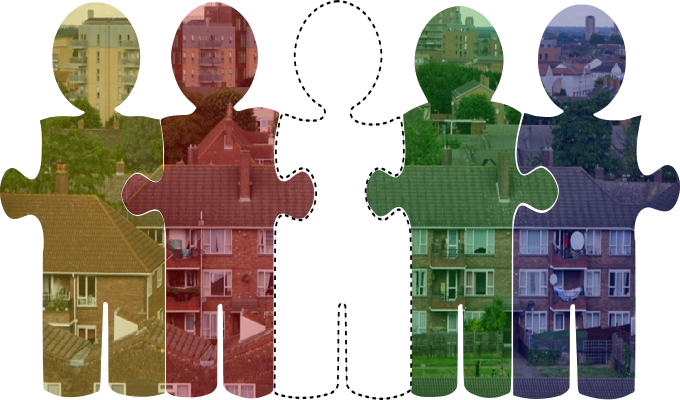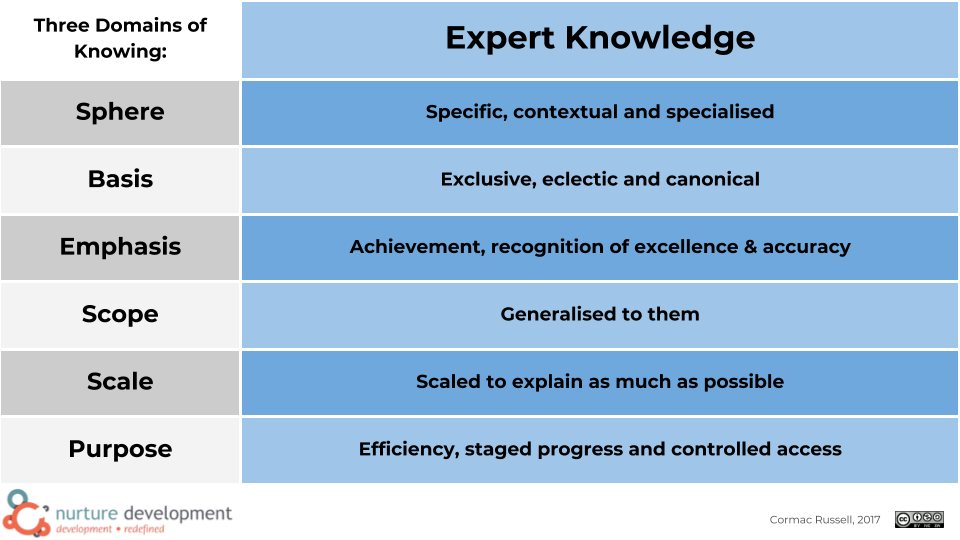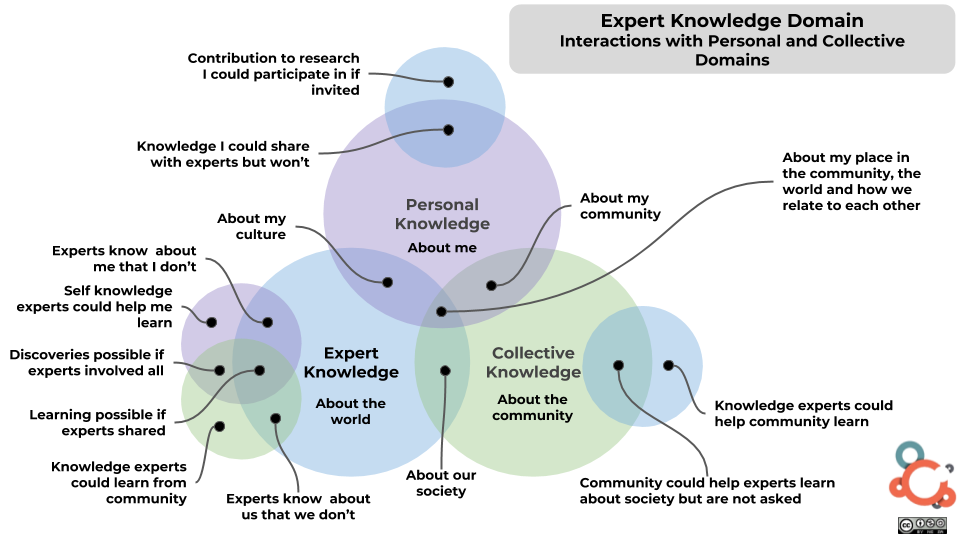
The Shift from Expert to Collaborator – Part 2 of 5
This is part two in a five-part series on the relationship between:
- Personal knowledge
- Public judgements
- Expert knowledge
This week we shall overview the Expert Knowledge Domain and introduce some ideas on exploring areas of value that can be realised by making connections with those who gain their insights from abundance in other domains of knowledge.

Expert knowledge has many valued characteristics; it aims for focused inquiry, and draws detailed insight from extensive data that requires time and skill to interpret. It is prized knowledge with extensive layers of verification and recognition; however distance from the people who are practitioners applying other perspectives can be side effects of the expert approach. The canonical basis of expert knowledge is eclectic and often unshared, the expression can be heavily reliant on abstract description that comes from its purpose to efficiently provide answers.
Most people with expert knowledge want their knowledge to be used. Their dilemma is that so often their technical know-how falls on deaf ears. What to do? They’ll know, if they are paying attention to the feedback, that defending their technical position (correct as it may be) with more data, doesn’t work.
So, what does? That’s the key question. If, as an expert, you really want your knowledge used then it’s best to frame the challenge as a relational one rather than a technical one. You’ve got to become ‘affective’ to be effective.
Peter Block writes extensively about this in his ground-breaking book: Flawless Consulting. Here he explains that, as a credentialed professional with expert knowledge, there are three ways of ‘showing up’:
- The Expert – ‘the one who knows’, or at least the one with superior technical knowledge.
- The Pair of Hands – the plus one to the existing team, literally an extra pair of hands, to lend to the current enterprise. Hence, rather than shaping that enterprise you are simply additional capacity. Your expertise or technical know-how is not sought or particularly valued.
- The Collaborator – the person who gets their expert knowledge used because they know how to show up in a way that respects the knowledge of others. They see the people they are dealing with as having as sharp a mind and as noble a heart as they themselves possess. Therefore, they are actively in search of ways to build collaborative relationships, and find ways of combining their expert knowing with the gifts, skills and passions of the people and associations they work with and serve.
The advice then is simply this: if you want your expert knowledge to be used, show up as a collaborator not as a know-all and start with a focus on being affective if you want to be effective. Being technically correct but not listened to is no fun and in the end, is ineffective. It is also important to note that for citizens to treat an expert as “a pair of hands” or to start portraying their knowledge as less valuable than it is, because we have felt undermined by ‘an expert’ in the past – while understandable, ultimately is a counterproductive move. Little is to be gained by sabotaging ourselves or denying ourselves useful knowledge because someone has acted or is acting like a know-all.
Throughout this series I will highlight the discoverable value lying in the places where the domains of knowing connect.
The diagram above illustrates connected areas by the overlaps. It is valuable to draw particular attention to the connected areas of the large circles compared to the small ones. The large circles depict visible spaces, and where they overlap we can say the value is being realised. The small circles however are hidden spaces, where the value all too often lies wasted.
Our challenge is two-fold:
- to build the connecting relationships that can draw what currently lies hidden and unknown deep into the heart of what is shared, where its value for the whole community can be realised.
- where collective knowing and personal knowing needs space. Lead by stepping back.
Next week in part three of the series I will go on to argue that there can be no experts in matters of judgement, albeit that expert knowledge and experts who show up in an affective and collaborative way are invaluable.
Cormac Russell
Part 1: Three Domains of Knowing
About the diagram: Knowledge Graph Key, Euler Diagrams.

